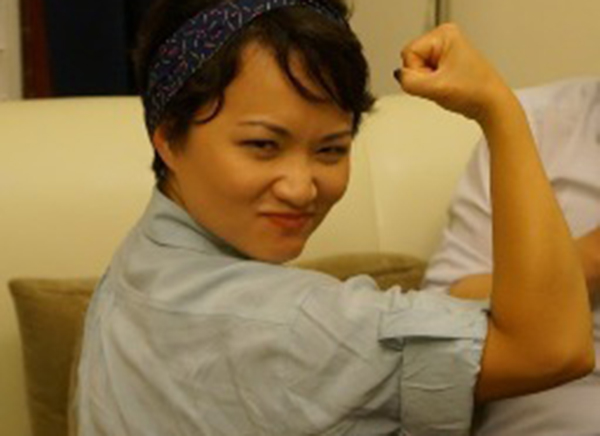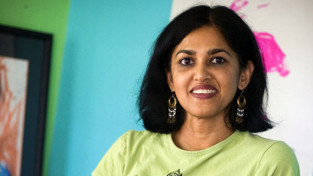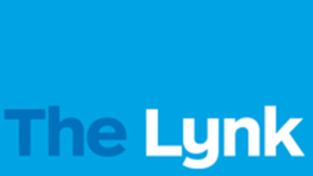Judy Tan ’03 Builds Mobile Healthcare App
With support from an Alumnae Fellowship, Judy Tan ’03 is making it easier for HIV-positive people to track their healthcare needs.

Judy Tan ’03 is working to examine the many complex factors that impact how HIV-positive men care for their disease in order to create a mobile app that improves this level of this care. “As you can imagine,” says Tan, “the behaviors of engaging in the HIV care continuum are complex and vary not only between people, but within people from day to day. I may be a super diligent person, but I can assure you that I miss my doctor appointments frequently, and I don’t take my medications consistently at the same time.”
When Tan was in the planning stages of the project, the process of completing the numerous, often tedious funding applications left her disheartened. One day, when feeling particularly lost, Tan had a revelation: “I realized that I was looking to places that may not appreciate the kind of work that I do, prompting me to think about the types of institutions that would support me and [my work], and I found myself clicking on the Mount Holyoke website.” With a few clicks she learned that the Alumnae Association annually offers eight different fellowships open to all Mount Holyoke alumnae.
Tan applied for and won the newly established Lyon’s Pride fellowship, given to an alumna who is “pursuing an LGBT, gender, or feminist studies project.” She is now in the pilot stage of research and ultimately hopes her work will result in a free app that people can download to their smart phones and devices.
There is nothing more exhilarating to me than to be able to formulate a research question as an observant participant in the world, investigate the problem, answer the question, and contribute to a viable and real-world solution based on science.
The Liberal Arts Grows Successful Scientists
Tan is examining couple-based interventions because an individual’s health behaviors are often affected by his or her partner’s behavior. Researchers have found that the HIV status of a partner can have a big impact on someone’s personal HIV care engagement, she says. The mobile app delivery method is appealing because “it can be private and tailored to the couple or the individual.” The details of what exactly the app will entail are still unclear. “This is the formative research stage,” says Tan, the data from which will inform exactly how the app will function.
Tan chose this topic because, she says, she cares “deeply about health disparities and the social factors that underlie them.” It’s a passion that developed as a result of her experiences at Mount Holyoke, where she directly credits her liberal arts education with preparing her for her work. “Courses in economics, literature, and philosophy helped me become the kind of critical, analytical social scientist and researcher that I am,” she says.
Her identity as a queer, Asian American, immigrant woman drives her work, too. “HIV prevalence is disproportionately high among communities of color and especially among certain groups such as sexual minorities,” she says. The first in her family to attend college, Tan went on to earn her master’s and doctorate degrees in social psychology, with a focus on health psychology and quantitative research methods. She is now able to examine and answer questions that plagued her growing up. “There is nothing more exhilarating to me than to be able to formulate a research question as an observant participant in the world, investigate the problem, answer the question and contribute to a viable and real-world solution based on science.”
Tan plans to set up a website in the future. Follow her project updates on Twitter at @APIDailyDiary.
—By Olivia Lammel ’14
Interested in Applying for an Alumnae Fellowship?
Thanks to generous gifts from alumnae, the Association offers fellowships to Mount Holyoke graduates each year. Applications due by January 15 and are disbursed July 1. Learn more »
September 17, 2014










THANK YOU FOR THE HIGH COMPLIMENT DR. CHIA!!!
This effort from Tan – the implementation of a mobile app for HIV affected men to better care for themselves – is quite novel and commendable. Tan correctly identities the complex interplay between couple behavior and the patient’s health behavior, thus delineating one key psychosocial factor predicting treatment outcome.
More often than not, research has focused upon molecular biology and pharmacology, thereby neglecting the psychosocial aspects of HIV care and treatment such as social support, patient behavior etc.
Tan is on the right track!
Note: I’m a physician practicing in Singapore, and specializing in HIV, STD and Andrology (Men’s Health).